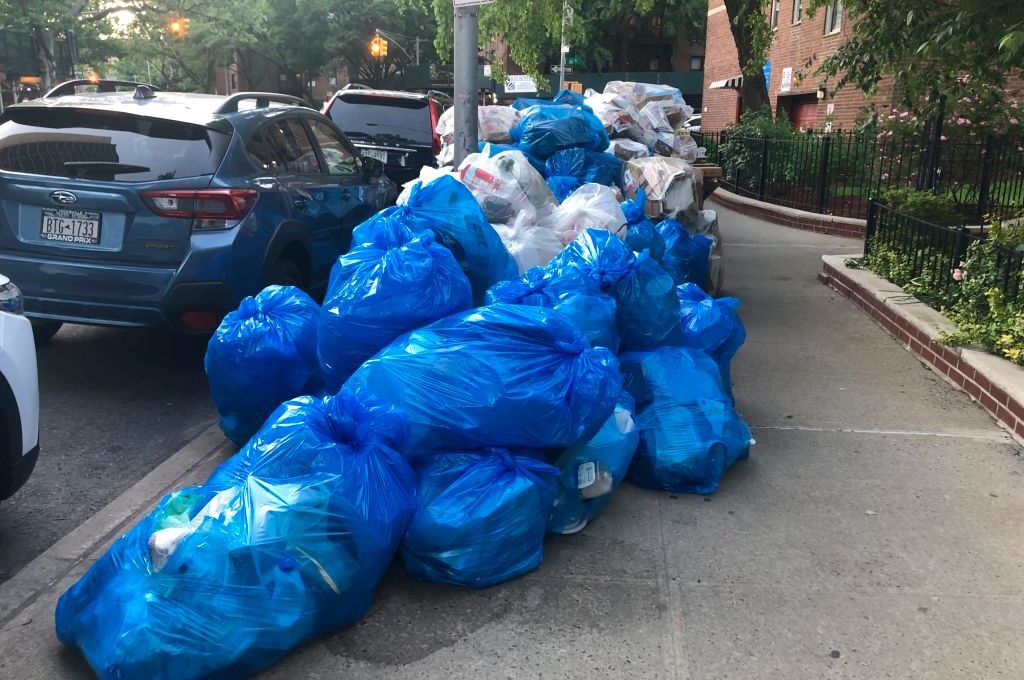The conceit that today’s US householder has never been better served, nor had more choices, has been put about for many years. The evidence often suggests otherwise. It’s a peculiar feature of our times that we’re constantly reminded how our “consumer experience” has so improved, and yet actually endure it as having worsened. Anyone who’s spent forty minutes on hold listening to the canned strains of Barry Manilow while being intermittently assured how truly vital their call is, and that the next available representative will be with them shortly, may know what I mean.
In seeking to put a human, or at least corporate, face to this strange disconnect between what we’re told is the superbly efficient and customer-friendly culture of our age, and the reality, I find myself drawn to three words: Waste Management, Inc.
I know. Working as a refuse relocation specialist, or whatever the current euphemism, is a perfectly worthy calling. Unlike so many modern tradesmen, he or (increasingly) she at least provides a tangible service. But why is it that one is irresistibly reminded of the caricature of my distant youth back in London, when that same profession was widely seen as the epitome of an essentially cheerful, but gormless working-class type? In those days, you would have paid no more attention to his or her higher views on society than those of your family pet. I might add that the Refuse Specialist was then also the subject of a certain amount of good-natured satire in film, book, and song. Every British schoolchild, and many of their parents, thrilled to Lonnie Donegan’s seminal 1960 hit “My Old Man’s a Dustman,” whose eponymous hero “wears gorblimey trousers” and “lives in a council flat.” A few years later, there was an enjoyable Saturday morning TV series called Quark, in which Richard Benjamin played a futuristic but gloriously inept operative of the United Galaxy Sanitation Patrol. And who could possibly forget Stanley Holloway’s award-winning turn as the all-singing Cockney layabout Alfred P. Doolittle in My Fair Lady, a character given to scratching himself in inappropriate places and exuding an almost palpable aura of cheap gin?
Compare all that to today’s ludicrously self-important “Environmental Waste Disposal Expert” (as my current bill puts it), or, as I still like to think of him, binman. Rarely a week goes by here in Seattle without our being subjected to a variety of new exhortations, appearing in either written or spoken form, about what waste product, precisely, to consign or not to which receptacle. The list of the standing rules and regulations gummed to the inside lid of those same containers is impressive in itself. Clean Recyclables Only. Wash your Bottles. Yard Waste Prohibited. No Foodstuffs. Hazardous Material Forbidden. Display For Your Carrier on Alternate Thursdays, Except on Public Holidays, During Inclement Weather, or as Otherwise Notified. We Will Not Tolerate Abusive or Intimidating Conduct.
More often than not, the directives include dire (and laughably ungrammatical) threats of fines or other sanctions should we, the fee-paying customers, fail to comply. Look at a snapshot of a typical American residential street of fifty years ago, and then compare it to the same scene today. Leaving aside our yards and our cars, and how much better-dressed we were then, the most striking difference is the modern array of garish and hideously mismatched tubs mandated for our household trash in all its many sub-categories. In my part of the world, they sometimes sit there festering for weeks on end, as we await the outcome of the latest strike or listen to the interminable recorded messages telling us that, due to a light dusting of snow, or persistent rainfall (this is the Pacific Northwest we’re talking about), services have been suspended “for the safety and convenience of our clients.” When I once asked a rare human operative of Waste Management how, exactly, the non-collection of my garbage could be considered convenient for me, she said that these sorts of “difficult decisions” had to be taken “at a moment’s notice,” and in “highly pressurized conditions.” Well, quite. But then again, it’s a matter of hauling away junk at about $25 a pop for each ten-second extraction, not brain surgery, you remind yourself.
Yes, a certain amount of prudent stewardship of the earth’s resources is in all of our interests. But that’s not quite the same thing as submitting to the corrosively bullying tactics of at least some of those whom we pay to remove our trash. Back in the dark ages, when I was young, characters like that were popularly known as “little Hitlers.” They were largely undistinguished figures for whom no word or deed that might question their own authority could be tolerated, especially from the likes of a mere customer. Good citizenship is one thing, even if it’s arguably now the case that we all live in a sort of ecological dictatorship devoted to the cult of sustainability. But it’s quite another thing when a monolithic, profit-led organization like Waste Management, a firm that enjoyed earnings of $19 billion (roughly the GDP of Afghanistan) in the twelve months ending December 31, 2022 — and in the measured words of its CEO, “delivered another year of steady growth, particularly in our collection and disposal business” — seeks to bully those who directly pay for its services.
Of course, it would be quite wrong to equate the senior or even junior echelons of that great company with the sort of sour-faced, humorless petty tyrants so prevalent in 1930s Germany. But in so far as the modern waste disposal racket is all about regulation and compliance on our part, not about deference and courtesy on theirs, it’s a parallel worth considering.

























